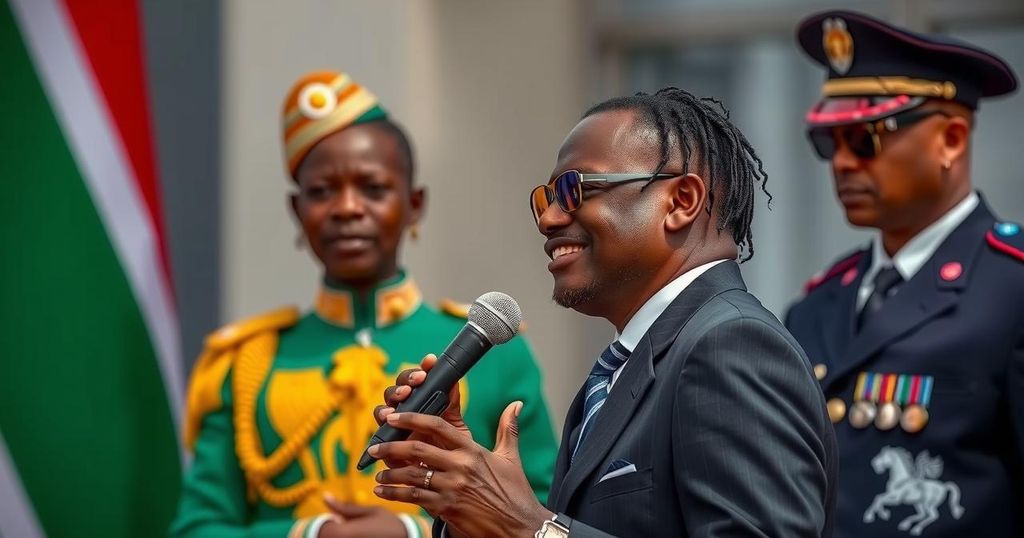Botswana’s President Duma Boko Promises Change and Unity at Inauguration

Botswana’s new president Duma Boko was sworn in after his UDC party secured a historic victory, displacing the longstanding ruling BDP. Boko outlined urgent reforms aimed at economic revitalization and social equity while fostering a renewed commitment to democracy. His inauguration was marked by significant public attendance and regional solidarity, symbolizing a pivotal shift in Botswana’s political landscape.
Botswana inaugurated its new president, Duma Boko, on Friday, marking a significant political transition after his decisive election victory that ousted the long-standing ruling party. Boko, representing the Umbrella for Democratic Change (UDC), emphasized the importance of the recent democratic test, stating, “For nearly three score years, our democracy remained unbroken, unproven and untested. On the 30th of October this year, together, we tested this democracy.” His party’s overwhelming success in securing 36 parliamentary seats stands in stark contrast to the four retained by the Botswana Democratic Party (BDP), a party that had governed since the nation’s independence in 1966. During the ceremony attended by thousands at the national stadium, Boko acknowledged the contributions of his predecessor, Mokgweetsi Masisi, despite the presence of discontent from some attendees. Boko remarked, “Botswana has set the example of a true democracy at work for the whole world to see and emulate.” The electoral engagement, particularly among young voters, reflects a desire for change concerning unemployment and economic disparity as Botswana navigates challenges following declines in diamond sales. Boko’s UDC campaign has proposed ambitious initiatives aimed at job creation, housing development, and tariff reductions while prioritizing enhanced healthcare access. Notably, the attendance at his inauguration, including international figures like Zimbabwe’s opposition leader Nelson Chamisa, signifies broader regional implications and hopes for transformative governance in southern Africa. The high voter turnout of 80% illustrates the populace’s commitment to democracy and their urgent demand for progressive leadership. Boko, adorned in Botswana’s national colors, symbolized unity during the inauguration, calling upon citizens to embrace their roles as architects of national change. The ceremony encapsulated a moment of hope as Botswana embarks on this new political dawn under Boko’s leadership.
The political landscape of Botswana has undergone a substantial transformation following the recent elections in which Duma Boko’s UDC defeated the BDP, a party that had maintained governance for nearly six decades since independence. The change in leadership comes amid rising public dissatisfaction with the previous administration, primarily regarding economic management and social disparities. This election has sparked renewed enthusiasm for democratic engagement among younger voters—a demographic that significantly influenced the recent electoral results. Botswana’s resilient democratic traditions provide a backdrop for this political shift, suggesting a pivotal moment in its governance.
In conclusion, the inauguration of Duma Boko as the new President of Botswana marks a historic turning point in the nation’s democratic evolution. The overwhelming support for his leadership reflects a collective desire for change and progress. Boko’s ambitious plans signal a commitment to transforming Botswana’s economy and addressing pressing social issues, setting a hopeful precedent for both the country and the wider Southern African region. As Botswana embraces this ‘new dawn,’ the international community watches with vested interest, anticipating the outcomes of this significant political shift.
Original Source: www.barrons.com








